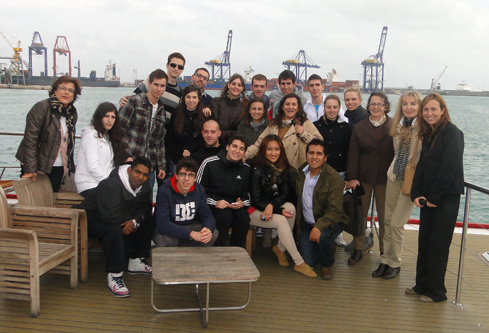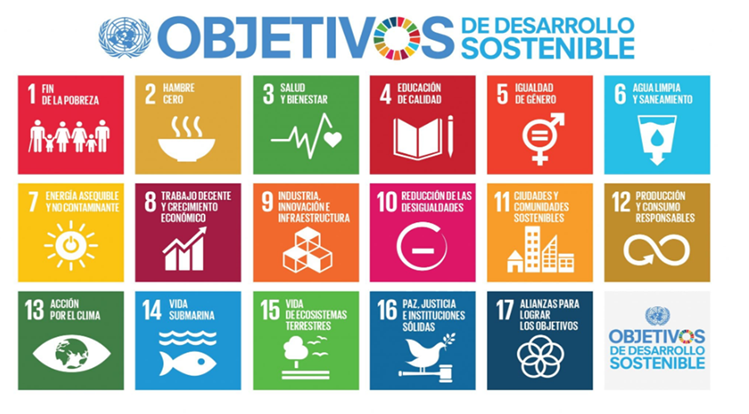The PAV is firmly committed to integrating Social Responsibility into its everyday activities in order to establish a balance between commercial growth and sustainability.
In 2005 the PAV started up a progressive Social Responsibility implementation process which is now in constant reformulation based on our ongoing improvement approach and our search for excellence.

Our CSR Plan is constantly updated thanks to the contributions of our stakeholders: internal public, Port Community and citizens. Planning for activities connected with CSR is based on a series of general objectives:
- Develop the port simultaneously with environmental protection to guarantee the sustainability of port activities.
- Encourage a competitive and professional attitude among the people who work in the port industry.
- Ensure quality and appropriate information management in line with the needs of all stakeholder groups involved.
- Promote a constructive internal climate based on integration and involvement.
- Foster commitment to our environment.
All activities are structured around three major lines of action:
- Internal improvement and interdepartmental coordination line.
- General communication line.
- General collaboration line.
CSR policies are implemented in the three ports under the management of the Port Authority – Valencia, Sagunto and Gandía – and are based on the same values of our general mission: public service, economic efficiency, quality service and respect for the environment.
In summary, through Corporate Social Responsibility we aim to promote the best possible conditions for the entire PAV area of influence, for our own staff, the logistics-port community and citizens in general, and in particular our immediate community.

In the light of the growing awareness and interest in integrating the port community in its immediate social environment, the Port Authority of Valencia decided to create an initial cooperation framework to work together with the port community on implementing social responsibility in the Port of Valencia’s business environment. The 19 organisations that made up the initiative agreed to call the project “APORTEM – Valencia Solidarity Port”. The group has defined the priority areas of interest to map out common objectives and a road map. Two simultaneous lines of action have also been established: one centring on management, learning, and a forum for debate, and a second one involving cooperation for shared social action to benefit the local environment.
Some of charity initiatives promoted and carried out within the framework of the APORTEM project include:
- Donation of office furniture and promotion of voluntary work – Nazaret Arca de Noé Association.
- Campaign to collect clothes, food, personal hygiene products, classroom material, and toys for Christmas – Santiago Apostol School.
- Campaign to collect food, toys and essential items – Casa de la Caridad.
- Campaign to collect children’s hygiene products and baby food – Casa Cuna Santa Isabel.
- Campaign to collect clothes, household goods, food, personal hygiene products, and cleaning products to cater for the basic needs of sub-Saharan immigrants – Peter Maurin Shelter.
- Campaign to collect clothes, household goods, food, personal hygiene products, and cleaning products to cater for the basic needs of female immigrants – Dorothy Day Shelter.
- Campaign to collect clothes, food, and toys for families living in extreme poverty who are looked after in the areas surrounding the port – Alanna Foundation.
- Blood donation campaign in the port community – Valencian Region Blood Transfusion Centre.
- Collection point for food donations during the shipping industry’s International Paella Competition – Alanna Foundation
The Port Authority of Valencia has committed to meeting the 17 Sustainable Development Goals and related targets agreed in the 2030 Agenda for Sustainable Development. It will do so by identifying the actions and alliances that contribute to their implementation and consider the Action Plan for the Implementation of the 2030 Agenda. Towards a Spanish Sustainable Development Strategy, as a programme document for the period 2020-2030 of the General State Administration which places the SDGs and Sustainable Development at the heart of government action. The action plan states that it is the competency of the public administration to exercise leadership corresponding to the action agreed and assume responsibility for driving the initiative. This national policy is supported and embraced in the commitment of the regional government of Valencia, evidenced in the Action Plan for Implementation of the 2030 Agenda, which is structured across three vectors: information, awareness and commitment.


